UberX are ‘cheap copies’ of taxis, industry group says
THE taxi industry has come out swinging against ride-sharing services, saying UberX is a “cheap imitation” of taxis.
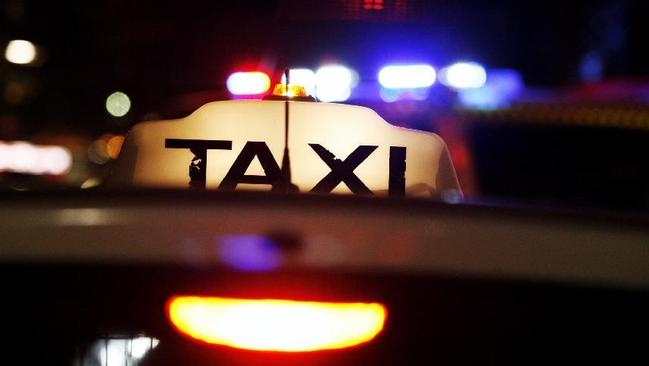
THE taxi industry has come out swinging against ride-sharing services, saying UberX are “cheap copies” of taxis.
After a detailed story on news.com.au on Monday that examined the stoush between taxis and UberX, the Australian Taxi Industry Association (ATIA) has released a statement that rejects as “complete fiction” claims that it is anti-competitive and has influenced governments to stand in the way of ride-sharing services.
“Ride-hailing services are illegal because they refuse to operate with properly licensed drivers or use properly licensed vehicles,” ATIA chief executive officer Blair Davies said.
“They are imitation taxi services, and just like many cheap copies or fakes, they take shortcuts on the things that consumers can’t see.”
UberX, which is growing in popularity in Australia’s capital cities, is a point-to-point ride-sharing service where private individuals use their own cars to drive passengers for a fee.
The alternative mode of transport has quickly found favour with customers thanks to its cheaper prices, cashless payments, GPS technology that allows cars to be tracked, open feedback system and good customer service.
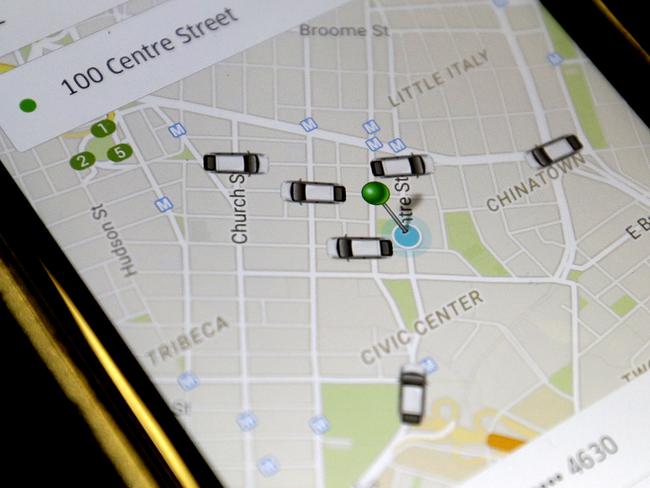
However, the service has fallen foul of Australian laws, with drivers in NSW and Victoria copping fines and being brought before the courts for breaking passenger transport legislation, which requires drivers and vehicles to be licensed.
Mr Davies said the taxi industry was not anti-competitive because it held the view that the government should uphold laws that kept consumers and workers safe from harm.
“It’s not competition that is the issue here,” Mr Davies said. “It is the safety of the community and working conditions of drivers that we are concerned about.
“There should not be one set of laws for legitimate taxis and another de facto set for imitation taxis. A fair go for all requires equality under the law.”
UberX’s Australian general manager, David Rohrsheim, said the company was lobbying state governments throughout Australia to regulate the growing ride-sharing sector.
While Mr Rohrsheim urged governments to be “forward-looking” and adaptive to new technology, NSW and Victoria has hit UberX drivers with fines and court attendance notices for breaking transport laws.
“I find that disappointing,” Mr Rohrsheim told news.com.au. “It’s clearly not what the riders and customers in NSW and Victoria want the government to do. People want safe and reliable rides and that time and money that could be spent on having a look at ride-sharing.”
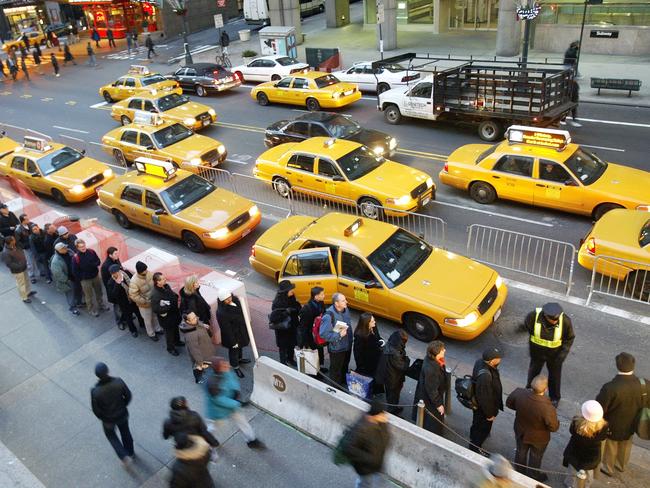
UberX has met with NSW Transport Minister Gladys Berejiklian once and Mr Rohrsheim said he was eager to be part of future discussions.
“We don’t expect to continue to work without regulation,” Mr Rohrsheim told news.com.au.
Uber has attempted to make this a state election issue, with the company encouraging customers to email candidates to say they are in favour of the introduction of “sensible ride-sharing regulations”.
“Every day there are more riders and their voices are growing louder,” Mr Rohrsheim said. “One by one they are telling their local members, ‘I like this’.”
But the taxi industry says that UberX doesn’t cater for all Australians.
“UberX undoubtedly has its supporters, but that doesn’t mean their views are reflective of the wider Australian community,” Mr Davies said.
“UberX doesn’t cater to people who don’t have access to a smartphone or credit card, people living in fringe areas or with a disability, probably because it’s just not profitable enough.”
The taxi industry says UberX rides operate with inadequate insurance, a claim that has been backed up by the Insurance Council of Australia.
The council says that drivers and passengers may expose themselves to substantial financial loss if they are involved in a crash.
“Any passengers that use a ride-share service, or any motorist offering a ride-sharing service, should be aware of the high level of uncertainty about how their insurance policies may respond as a result of an incident,” the council’s chief executive officer, Rob Whelan, said.
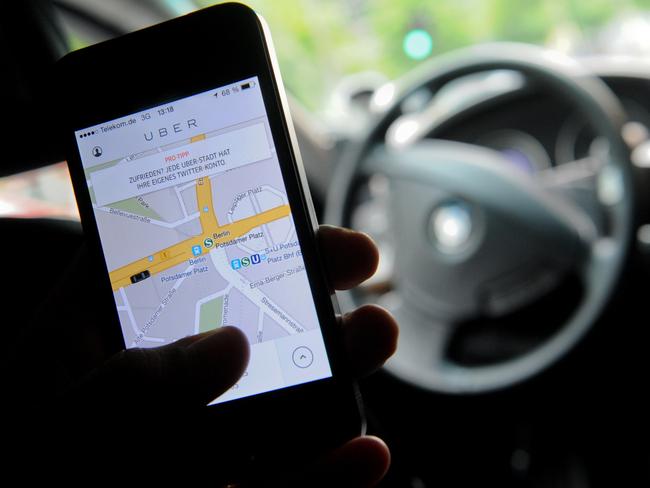
But Mr Rohrsheim said that every UberX ride has $5 million insurance cover.
However, a Insurance Council spokesman told news.com.au that if vehicles were used in illegal acts, it was unlikely that the insurance cover would be paid out.
The taxi industry also says that ride-sharing discriminates against people who use wheelchairs. Uber has confirmed that the only way for its customers to book a wheelchair-accessible vehicle is to book a taxi through its app.
But Mr Rohrsheim said the it was important to note that there was only one sector of the community that was speaking out against the growth of ride-sharing.
“The only gripe is from the established taxi owners. So they are the only voices speaking against it, hoping their business will be protected against new technology” he said.
The ATIA says it wants a “level playing field” but Mr Rohrsheim said this should not come at the expense of progress.
“Horse and cart operators would have wanted a level-playing field when the automobile arrived and newspapers would have wanted a level-playing field when the internet arrived,” Mr Rohrsheim said.
“Their idea of a level playing field is that new technology can be no better than it currently is.”
Taxis say that “training and vetting of drivers is minimalistic”, but Uber says its driver standards exceed that of taxis, mostly because customers are required to give feedback on every trip.
Drivers who rate below a four out of five on average are kicked off the platform.
“We believe that our riders are the safest on the roads,” Mr Rohrsheim said.
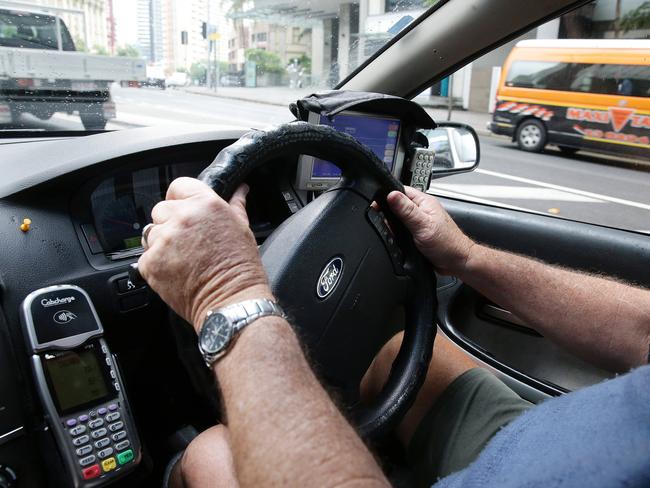
He also said that drivers were safer because the cashless payment via credit card meant drivers were not a target for thieves.
Mr Davies said safety inspections for Uber cars were “absent or non-existent”, but Mr Rohrsheim said all vehicles were less than 10 years old and underwent inspections by a third party.
Mr Rohrsheim concluded that taxi owners were seeking to “use their influence to take away consumer choice and drivers’ choice”.
NSW Liberal Transport Minister Gladys Berejiklian said the government would consult broadly with the community and industry before making any decisions about regulating ride-sharing.
“The current law is clear — it is illegal for drivers in NSW to participate in ride-sharing activities like UberX,” Ms Berejiklian told news.com.au.
“While Uber Pty Ltd does not breach the Passenger Transport Act 1990 by offering the service, drivers transporting passengers for a fare do. Twenty UberX drivers are being prosecuted and 77 court attendance notices issued, and Uber X drivers continue to be investigated for unlawful conduct.”
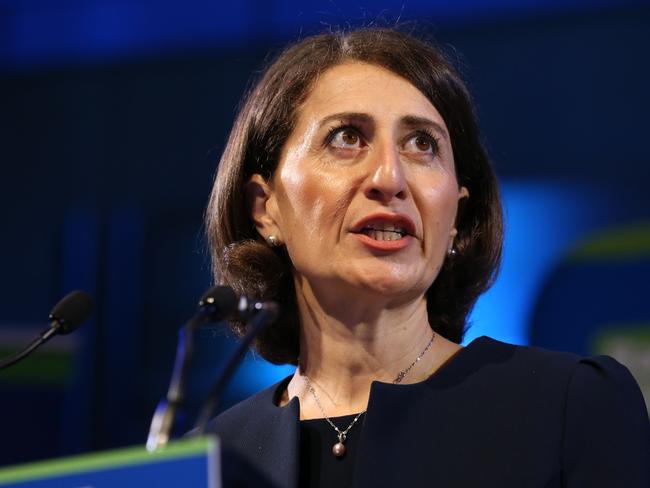
Federal Labor, however, has publicly embraced the “sharing economy” that UberX and short-stay rental website Airbnb promotes.
Speaking at the National Press Club yesterday, shadow assistant treasurer Andrew Leigh said these new business models should not be shut down, so long as they paid tax and supported workers’ rights.
Simon Cowan from libertarian think tank Centre for Independent Studies (CIS) said the Uber issue would come to a head soon. But he didn’t believe a separate set of legislation should be created to deal with ride-sharing services.
Last year, the CIS awarded the NSW and Victorian governments one of its annual Nannies awards — accolades it gives to the “worst examples of imposing regulations or promoting campaigns designed to prevent people exercising the right to think for themselves” — for its treatment of ride-sharing apps such as Uber.
“Part of the issue is the government receives revenue from the licensing process — it sells plates and it regulates and oversees the industry,” he said. “The taxi industry and those who own the plates have invested in that process. I think the answer is deregulation. If you reduce some of the regulatory burden for taxis then it would allow them to compete more efficiently. Then, I think you might see some of the tensions from the vested interests in the taxi industry dissipate.”
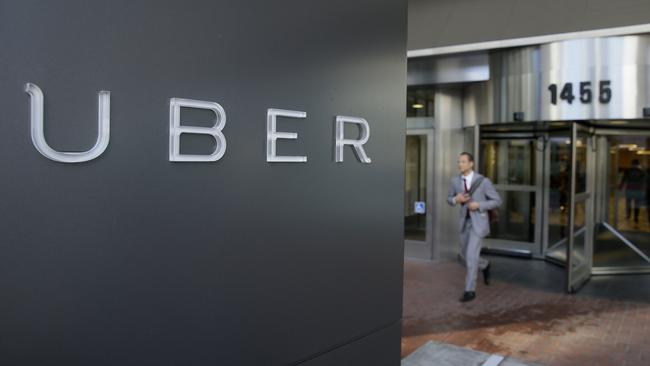
Mr Cowan said it was unlikely the NSW Government would say or do anything on the Uber issue three days out before the state election, but that it was going to have to deal with it soon.
“The sharing economy is growing everywhere. Governments will have to deal with the issue one way or another. The public pressure and the interest groups are competing forces and it will get to a point where governments will have to act,” he said.
Asked what kind of backlash the government would receive if it chose to blanket ban the service as some jurisdictions overseas have, Mr Cowan doubted whether such a move would be effective.
“There’s been a negative response to some of those actions. People will circumvent those regulations. Ignoring new technology or competition avenues is not effective. It should be about how to get the new systems into the existing marketplace,” he said.
“Safety is an issue but the primary interest should be in the benefit to consumers, rather than protecting the market position of existing players.”



